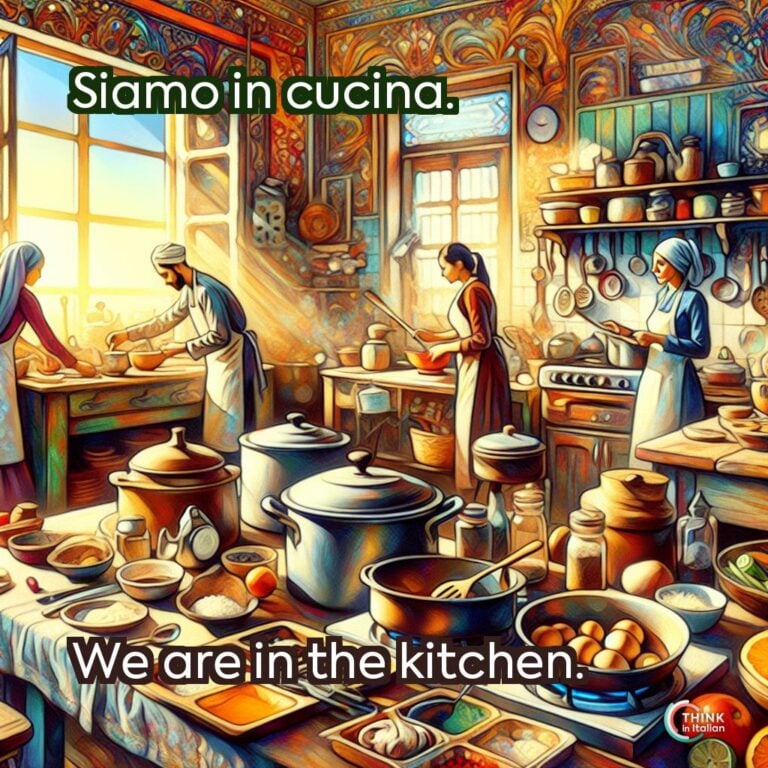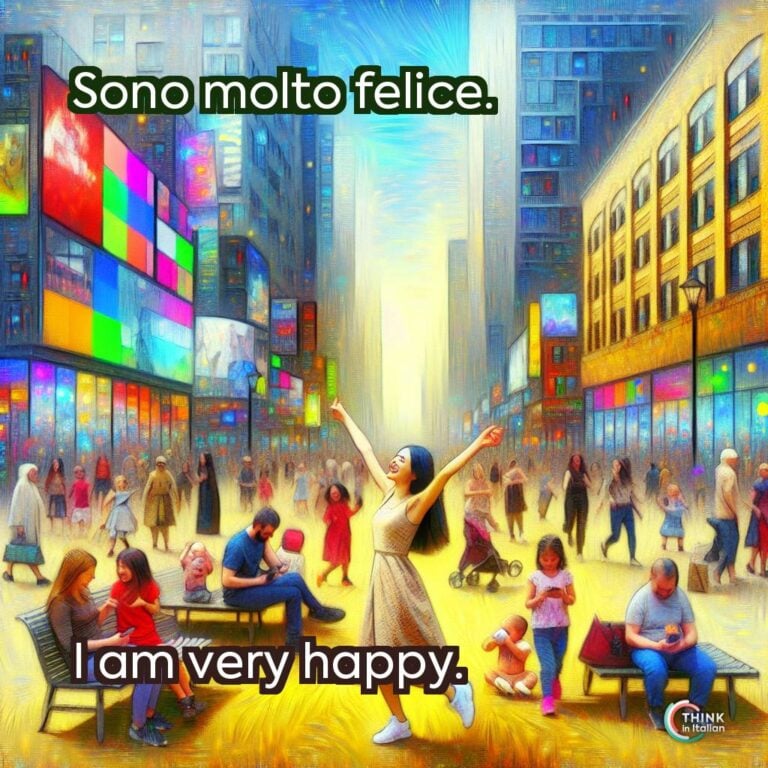“Essere” and “Stare”
Essere and stare are two verbs that both translate to “to be” in English, but, in Italian, they are used in different contexts and have different meanings.
Let me guide you through the uses of these two verbs to see the difference between essere and stare.
- Essere is the most common translation for the verb “to be”. It is an auxiliary verb, which means it is also used in compound verbs like passato prossimo (present perfect) or futuro anteriore (future perfect). It is used to:
- Describe permanent states, identity, or inherent qualities.
Sono Italiano.
I am Italian.
Lei è alta.
She is tall.
-
- Describe a profession or a role.
Lui è un medico.
He is a doctor.
-
- Express possession.
Quei libri sono di Lucilla.
Those books are Lucilla’s.
-
- Static locations.
La scuola è in centro.
The school is downtown.
-
- Time and dates.
Oggi è martedì.
Today is Tuesday.
- Stare is typically used in periphrases, namely those constructions composed of stare and another verb tense, like stare + gerund or stare per + infinitive. It is used to:
- Express a temporary state or location (with this meaning, also essere can be used)
Sto a casa stasera, non mi va di uscire.
I am at home tonight, I do not want to go out.
-
- Describe someone’s state or condition.
-Come stai?
-How are you?
Sto bene, grazie.
I am good, thank you.
Be careful though: when you want to say that someone is ill we use essere, although it might be considered a temporary state.
Non posso lavorare oggi, sono malato.
I cannot work today, I am sick.
-
- in expressions and idioms.
Stai attento!
Be careful!
Essere vs Stare
Before I dive into the grammatical details of these two verbs, let me show you a brief comparison between them.
| Essere | Stare |
|---|---|
| Permanent location | Temporary location |
| Identity and characteristics (identity, professions, nationality, and inherent qualities) | Temporary states/conditions (current state, condition, or feelings) |
| Possession | |
| Time and dates | |
| Permanent states (used with adjectives to describe permanent states or qualities) | Temporary states (mainly used with adverbs to describe temporary states or feelings) |
| Progressive actions (used with gerunds to indicate ongoing or continuous actions) | |
| Idiomatic expressions |
How to use Essere
Essere + Adjective
Essere is typically combined with an adjective. Remember that adjectives in Italian must agree in gender and number with the subject.
Essere + adjective can be used to express someone’s feelings, personality, and physical characteristics.
Perché sei triste?
Why are you sad?
Maria e Letizia sono molto alte.
Maria and Letizia are very tall.
Mia sorella è molto furba.
My sister is very cunning.
Essere + adjective can also be used to describe something’s condition or quality.
Il computer è nuovo.
The computer is new.
Quella penna è blu?
Is that pen blue?
Essere + adjective can also be used to talk about someone’s nationality, religion, ethnicity, ideology, origin, and identity.
Mio papà è turco.
My dad is Turkish.
Karim è arabo.
Karim is an Arab.
Essere as a Location
Essere can be used to express where someone or something is.
Sei in Argentina?
Are you in Argentina?
Io sono a Barcellona.
I’m in Barcellona.
Stare
Stare + Adverb
Stare is more often combined with an adverb. Unlike adjectives, adverbs do not vary, because they are used to provide further information about a verb or an adjective.
Come stai?
How are you?
Sto molto meglio, grazie.
I’m much better, thanks.
Stare + Gerund
As I mentioned before, we use stare to form the present continuous in Italian. To do so, you have to conjugate the verb stare and then add the gerund.
-Cosa state facendo?
-Io sto guardando la TV e Marco sta cucinando.
-What are you doing?
-I’m watching TV and Marco is cooking.
Stare per + Infinitive
As I mentioned before, we use stare to express something that is about to happen with the construction stare per + infinitive. To do so, you have to conjugate the verb stare and add the preposition per followed by an infinitive verb.
Non uscire, sta per piovere.
Do not go out, it is about to rain.




